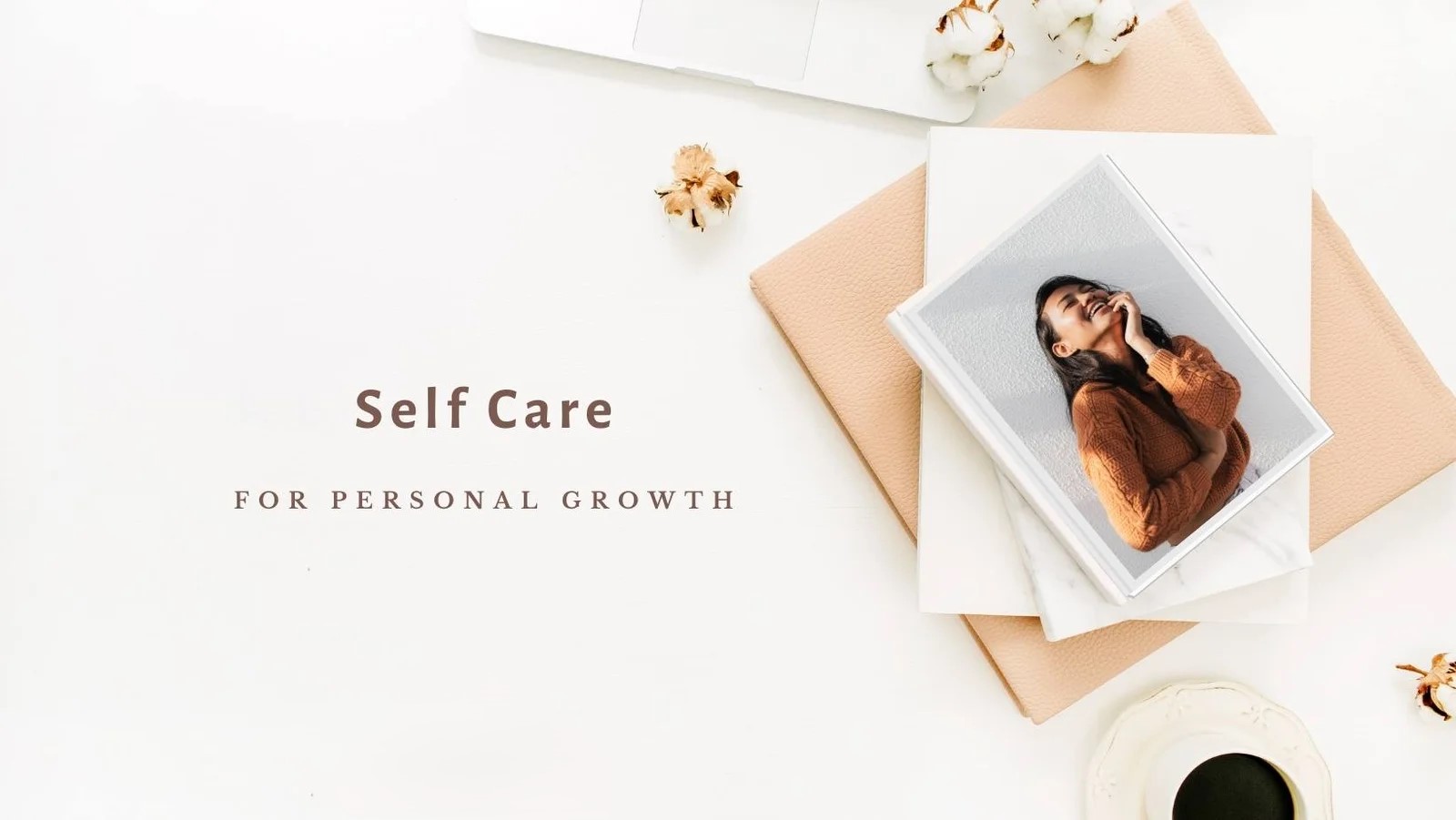Introduction
When we think about personal growth, we often focus on setting goals, pushing boundaries, and achieving success. But there’s one crucial element that’s often overlooked: self-care. Taking care of your mental, emotional, and physical well-being isn’t just about relaxation it’s a foundational part of growing as a person. Without self-care, burnout, stress, and overwhelm can hinder your progress and leave you feeling stuck. On the flip side, prioritizing self-care helps you build resilience, stay motivated, and unlock your full potential. In this article, we’ll explore the importance of self-care in personal growth and share practical tips to help you incorporate it into your daily routine. Ready to thrive, not just survive? Let’s dive in.
What Is Self-Care and Why Does It Matter?

Self-care isn’t just about spa days and bubble baths it’s about taking intentional actions to nurture your mind, body, and soul. It’s the foundation that supports your personal growth and well-being.
Tip: Identify areas in your life where you feel drained and prioritize activities that recharge you.
Example: “I realized I was constantly exhausted from work, so I started setting boundaries and dedicating time to hobbies I love.”
Why is Self-Care Important for Personal Growth?
Personal growth is about becoming a better version of yourself. This doesn’t just happen on its own. It requires effort, challenges, and a commitment to improving. Self-care plays a key role in this process because it helps you stay healthy and energized to face challenges. Without self-care, life’s stress and worries can take over, leading to burnout.
When you take time for self-care, you give yourself the strength to handle life’s ups and downs. It helps you focus on your goals, improve your self-awareness, and keep moving forward. In short, self-care makes personal growth possible.
Important Tips of Self-Care in Personal Growth

1. The Link Between Self-Care and Mental Health
Neglecting self-care can lead to stress, anxiety, and burnout. Prioritizing it helps regulate your emotions, improve focus, and boost overall mental health.
Tip: Incorporate mindfulness practices like meditation, journaling, or deep breathing into your routine.
Example: “Daily journaling helped me process my thoughts and reduced my anxiety over time.”
2. Physical Self-Care for Energy and Vitality
Taking care of your body through proper nutrition, exercise, and rest is essential for personal growth. A healthy body supports a healthy mind.
Tip: Find a form of exercise you enjoy, and prioritize sleep for optimal energy.
Example: “I started morning yoga sessions, and they gave me the energy and clarity to tackle my day.”
3. Emotional Self-Care: Honoring Your Feelings
Emotional self-care involves recognizing and validating your emotions rather than suppressing them. It fosters resilience and emotional intelligence.
Tip: Practice self-compassion and allow yourself to feel without judgment.
Example: “When I stopped ignoring my feelings and started talking to a therapist, I noticed significant personal growth.”
4. Setting Boundaries for Personal Growth
Healthy boundaries protect your time and energy, allowing you to focus on what truly matters. They’re essential for maintaining balance and avoiding burnout.
Tip: Learn to say no without guilt and prioritize activities that align with your goals.
Example: “Setting boundaries at work helped me regain control over my schedule and reduced my stress levels.”
5. Self-Care as a Tool for Productivity
Contrary to popular belief, self-care isn’t a distraction from productivity it enhances it. Taking breaks and recharging helps you stay focused and creative.
Tip: Schedule regular breaks and downtime to avoid burnout.
Example: “Taking short breaks during work improved my focus and made me more productive overall.”
6. Cultivating Self-Awareness Through Self-Care
Self-care practices like reflection and mindfulness foster self-awareness, helping you understand your strengths, weaknesses, and values.
Tip: Set aside time for regular self-reflection to track your growth and adjust your goals.
Example: “Weekly reflections helped me identify patterns in my behavior and areas where I wanted to grow.”
7. Practical Self-Care Tips for Everyday Life
Incorporating self-care doesn’t have to be time-consuming. Small, consistent actions can have a big impact on your well-being.
Tip: Create a self-care routine with simple activities like reading, walking, or connecting with loved ones.
Example: “A 10-minute walk outside each day cleared my mind and boosted my mood.”
Self-Care and Physical Health

Physical health is another important aspect of self-care. Taking care of your body by eating healthy food, exercising, and getting enough sleep helps you feel better and have more energy. When you’re physically healthy, it’s easier to manage stress and focus on other parts of your life. Small changes, like going for a walk or drinking more water, can make a big difference. By taking care of your physical health, you can feel more strong, active, and ready to take on new challenges.
Setting Boundaries for Self-Care
Setting boundaries is an important part of self-care. It’s about knowing when to say no to things that drain your energy and making time for what matters most to you. Boundaries could include limiting how much work you take on, saying no to social events if you need a break, or telling others when you need some alone time. Setting these boundaries helps prevent burnout and ensures that you’re not overextending yourself. It’s important to remember that it’s okay to put your needs first sometimes.
Self-Care and Relationships

Self-care can also improve your relationships. When you take care of yourself, you’re better able to show up for others. Being well-rested, calm, and emotionally stable helps you communicate better and be more present with friends and family. It also helps you set healthy boundaries in relationships, so you’re not feeling overwhelmed or drained. By practicing self-care, you create a healthier balance between your own needs and the needs of others, which leads to stronger, more positive relationships.
Self-Care as a Long-Term Practice
Self-care isn’t just a one-time activity; it’s something you need to practice regularly. It’s about making self-care a part of your everyday life, not something you do only when you’re feeling stressed or overwhelmed. The more you take care of yourself, the easier it becomes to handle challenges and stay focused on your goals. By making self-care a long-term habit, you create a healthier, more balanced lifestyle that supports your growth and happiness.
Self-Care and Stress Relief
One of the biggest benefits of self-care is its ability to relieve stress. Life can get overwhelming, and when we don’t take care of ourselves, stress can build up quickly. Regular self-care helps to calm your nerves and reduce stress levels. Activities like practicing mindfulness, getting enough sleep, or engaging in hobbies you enjoy can all lower your stress. By making self-care part of your routine, you’ll be better prepared to handle stressful situations without feeling drained or anxious.
Self-Care and Personal Reflection

Taking time for self-care allows you to reflect on your life and your goals. Personal reflection helps you understand what is important to you and what you want to achieve. When you are constantly busy, it’s easy to lose track of your own needs and desires. By setting aside time for self-care, you create space to think about your values, strengths, and areas for growth. Reflection also helps you make better decisions and stay focused on your personal development journey.
Building Healthy Habits Through Self-Care
Self-care is also about building healthy habits that last. Small daily actions can lead to big changes over time. Whether it’s drinking more water, practicing gratitude, or getting regular exercise, these habits improve your overall well-being. By incorporating self-care into your routine, you make long-term changes that help you grow as a person. These habits not only improve your physical and mental health but also make you more resilient to life’s challenges.
The Role of Self-Care in Building Confidence
When you take care of yourself, you naturally feel more confident. Self-care boosts your self-esteem by showing yourself that you are important and worthy of care. Whether it’s through practicing positive self-talk, taking care of your physical health, or engaging in activities that bring you joy, self-care helps you feel more comfortable in your own skin. As you build confidence through self-care, you are better able to face challenges, try new things, and take risks that lead to personal growth.
Challenges to Practicing Self-Care
Sometimes, it’s hard to make self-care a priority. Life gets busy, and it can feel like there’s no time to care for yourself. But when you don’t practice self-care, it’s easy to feel drained, stressed, or burnt out.
Start small try adding just five minutes of self-care to your day. As you get used to it, you can gradually build more time for yourself. Be patient and kind to yourself as you make self-care a part of your routine. Remember, it’s not about perfection—it’s about making small changes that lead to a healthier, happier you.
The Future of Self-Care

The future of self-care looks bright, with more people recognizing its importance. As awareness of mental health and well-being continues to grow, self-care will likely become even more integrated into daily routines. Technology is also playing a role in self-care, with apps for mindfulness, fitness, and mental health support. In the future, we can expect self-care practices to be more accessible and personalized. As society continues to embrace the idea that taking care of yourself is crucial for success, self-care will likely become an even more important part of daily life.
Analysis Table: How Self-Care Impacts Personal Growth
| Aspect of Self-Care | Impact on Personal Growth | Key Benefits | Examples of Practices |
|---|---|---|---|
| Mental Health | Promotes emotional stability | Reduced stress, better decision-making | Meditation, therapy, journaling |
| Physical Health | Increases energy and focus | More stamina, improved well-being | Exercise, healthy eating, sleep |
| Emotional Health | Boosts emotional intelligence | Better relationships, increased self-awareness | Talking to a friend, gratitude journaling |
| Spiritual Health | Enhances sense of purpose | Clarity, inner peace | Meditation, nature walks |
Comparative Table: Self-Care vs. Burnout
| Factor | Self-Care | Burnout |
|---|---|---|
| Mental Health | Improved mental clarity and balance | Stress, anxiety, and overwhelm |
| Physical Health | Better energy and overall wellness | Fatigue, exhaustion, lack of energy |
| Emotional Health | Strong emotional stability | Irritability, emotional burnout |
| Motivation | Increased motivation and focus | Decreased motivation and drive |
Conclusion
Self-care isn’t a luxury it’s a necessity for personal growth and well-being. By nurturing your mind, body, and emotions, you create a solid foundation for success in all areas of life. Whether it’s setting boundaries, practicing mindfulness, or simply taking time to rest, self-care empowers you to thrive, not just survive. Remember, personal growth isn’t about constant hustle; it’s about finding balance, honoring your needs, and showing up as your best self. So, make self-care a priority and watch how it transforms your life, one small step at a time.
Call to Action
What’s your favorite self-care practice? Share your tips and experiences in the comments below, and subscribe for more personal growth and wellness insights!




